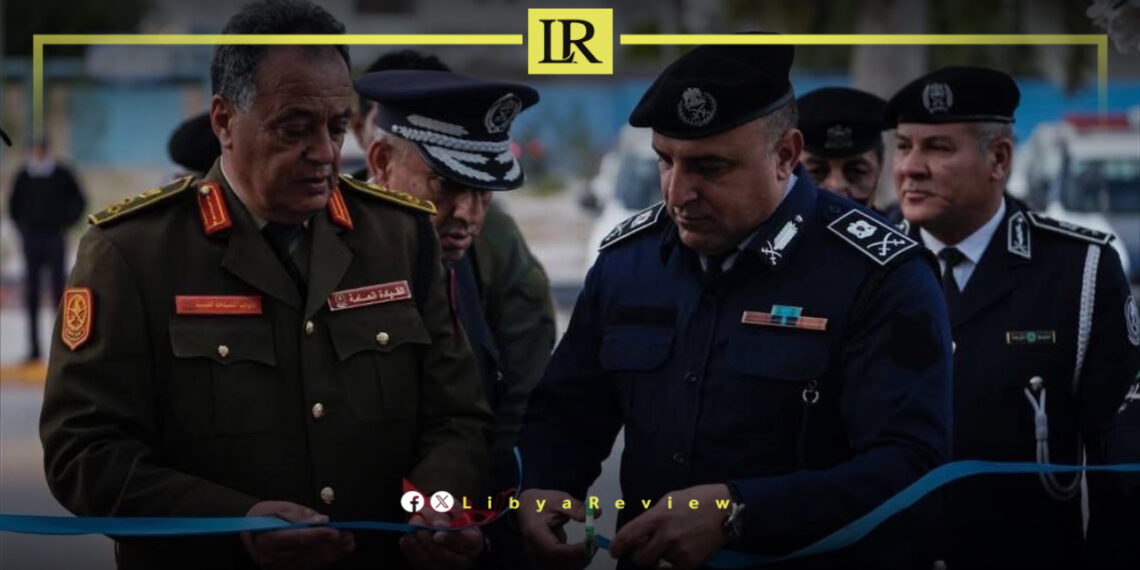The Security Directorate of Benghazi has reopened several police stations following comprehensive renovation works, with support from the General Command of the Libyan National Army. The refurbished stations include those in Buatni, Al-Baraka, and Al-Fuwayhat districts.
The reopening ceremony was held under the direct supervision of the Chief of Staff of the Land Forces, Lieutenant General Saddam Haftar, and marks a significant step towards enhancing the city’s law enforcement infrastructure.
According to a statement posted by the Security Directorate on Facebook, the ceremony was attended by Major General Ahmed Imadi, Deputy Director of Greater Benghazi Security; Major General Adel Al-Qamati, Assistant for Inspection and Oversight Affairs; Brigadier General Fawzi Al-Dinali, a representative of the General Command; as well as a number of officers and non-commissioned officers from the Directorate.
The initiative is part of a broader strategy to upgrade security infrastructure and improve working conditions for personnel at the Ministry of Interior. The statement added that these efforts aim to enhance operational efficiency and deliver improved services to the public, in line with directives from the General Command of the Armed Forces.
Libya has been in chaos since a NATO-backed uprising toppled longtime leader Muammar Gaddafi in 2011. The county has for years been split between rival administrations.
Libya’s economy, heavily reliant on oil, has suffered due to the ongoing conflict. The instability has led to fluctuations in oil production and prices, impacting the global oil market and Libya’s economy.
The conflict has led to a significant humanitarian crisis in Libya, with thousands of people killed, and many more displaced. Migrants and refugees using Libya as a transit point to Europe have also faced dire conditions.
The planned elections for December 2021 were delayed due to disagreements over election laws and the eligibility of certain candidates. This delay has raised concerns about the feasibility of a peaceful political transition.
Despite the ceasefire, security remains a significant concern with sporadic fighting and the presence of mercenaries and foreign fighters. The unification of the military and the removal of foreign forces are crucial challenges.


